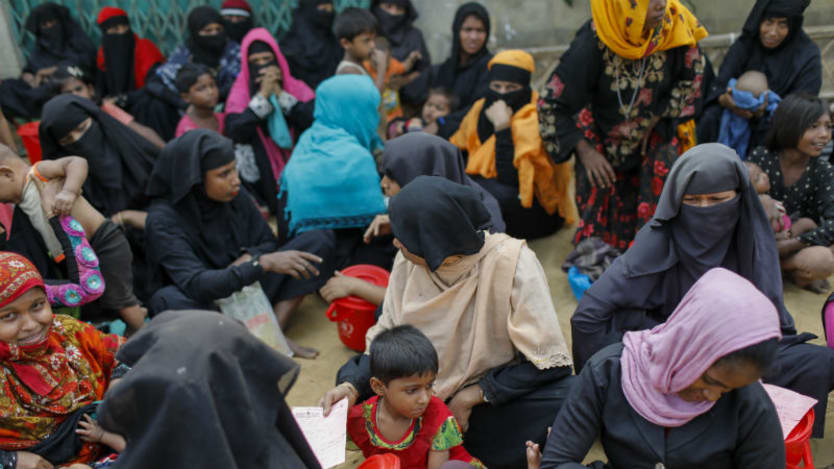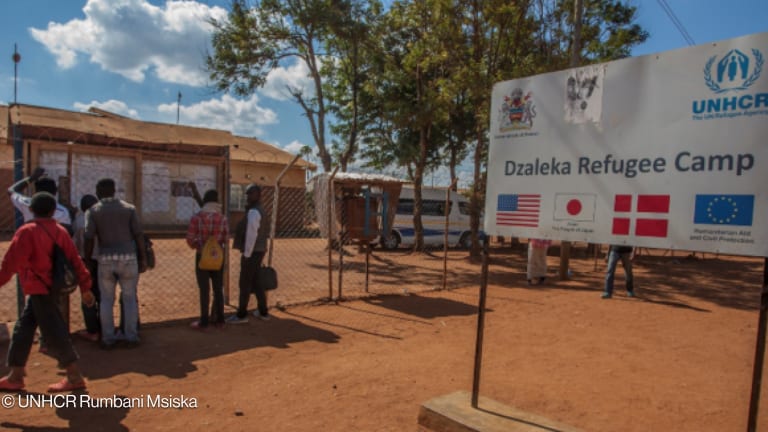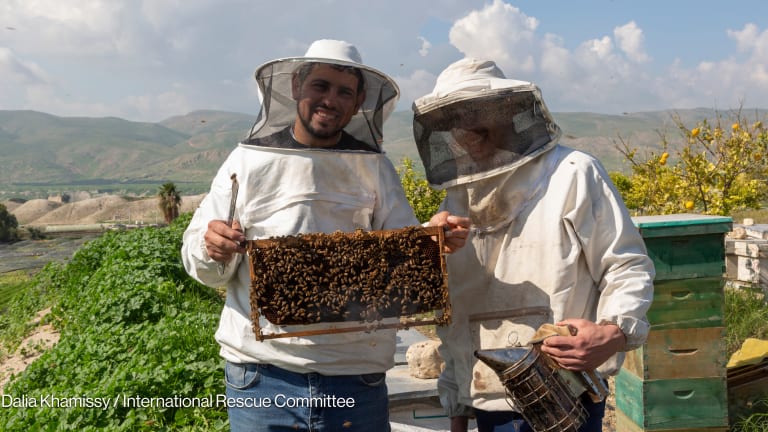
This December, the Global Refugee Forum will be a major test of political will to address the ever-increasing numbers of refugees worldwide. Lessons from 2016 tell us that real change in people’s lives will only come if GRF delivers on meaningful commitments, adequate financing, and robust accountability, focused on host and donor countries alike. As nations start prioritizing their commitments this month, there are three key ingredients that should be considered in tackling the refugee challenge.
More on migration and displacement:
► Can the Global Compact for Migration make a difference?
Back in 2016, nations came together and made remarkable commitments in response to growing numbers of refugees worldwide. Wealthy nations committed to a 30% increase in humanitarian financing and to a doubling of refugee resettlement spots. Host nations, already shouldering far more than their fair share of global responsibility, committed to provide 1 million refugees access to education and to ease work restrictions to provide refugees access to one million jobs.
The World Bank introduced a new mode of financing, providing long-term funding to more than a dozen host nations to help them grow their economies and strengthen and extend social services to refugees and affected host communities.
More than a one-time gesture, these changes were meant to signify a new approach to refugee response — one that recognized that crises were burning longer (lasting 37 years on average); that refugees were increasingly urbanized, with nearly 60% living outside of camps; and that whole generations of human potential were lost when refugees did not have access to education and work. “The Global Compact on Refugees,” agreed by 181 nations in 2018, was historic in that it codified the 2016 approach of sharing global responsibility for refugees more predictably and equitably. The compact centered on the pillars of easing pressures on refugee hosts, enhancing refugee self-reliance, expanding access to third country solutions, and supporting countries of origin to create the conditions for return in safety and dignity.
So what happened next? We’ve seen a wave of elections across Europe and the U.S. drastically change the global political environment while most refugee crises continue unabated. U.N. appeals are just 19% funded almost halfway through the year. And few host nations have had the support to follow through on commitments to education and work for refugees.
But there have also been some bright spots. In Jordan, we have seen promising changes since the government agreed to issue work permits to refugees for select sectors and expanded its law to allow refugees, including women, to own and operate home-based businesses. Similarly, Ethiopia has passed the Refugee Proclamation, a new law that opens up a pathway for refugees to find formal work outside of camps.
In light of these examples, three things need to happen for GRF to be a success.
First, stakeholders must support commitments to life-changing interventions for refugees and their hosts. Experience from implementing pledges made in 2016 shows how important it is to focus on a set of critical changes, such as resettlement spots, policies on access to livelihoods, education, and freedom of movement. We now need a new set of pledges that take countries to the next step.
The UN Refugee Agency — the agency leading forum preparations — should, as a matter of urgency, identify where the time is right for meaningful policy changes that respond to the actual needs of refugees and their host communities. UNHCR should then work with supportive member states and financial institutions to build the support required to put those policies in place.
Second, donors must support interventions for refugees and their hosts with adequate resources. Achieving self-reliance — one of the key objectives of the Global Compact — requires not just more but different financing, taking a longer-term approach that helps refugees survive, recover, and then rebuild their lives. Protracted conflict and violence drive 80% of humanitarian needs, and the average interagency appeal lasts 7 years.
We need to move beyond the short-term funding cycle of most humanitarian projects towards interventions that support sustainable solutions early on and avoid leaving refugees and host communities in a situation of chronic crisis. For example, while over 50% of refugees are children, just 2% of global humanitarian aid goes to education. This is a good indication that financing is not yet aligned against the right type of interventions. With its new refugee financing envelope, the World Bank has pioneered a comprehensive approach, moving beyond the humanitarian phase in more than a dozen host countries, with promising results. Other donors and financial institutions would do well to follow suit if they want to see a lasting impact, rather than quick fixes, for the money they give. In turn, host countries should put in place those institutional changes that will allow them to absorb additional resources most effectively.
Third, GRF must focus on accountability for outcomes. The Global Compact explicitly calls for both accountability and progress monitoring, yet to date, there is a high chance that we will end up with a plethora of disparate pledges that are impossible to track. Commitments that will be promised in December will not matter by the next forum if they are not implemented. We must hold one another to account for the outcomes that we commit to support. GRF should also seek member state pledges to include refugees in national development plans and reviews as part of their Sustainable Development Goals efforts, both in host countries and in countries of origin.
Only just under 3% of 25 million refugees were able to return home safely in 2017. Meanwhile, just 10 nations, with barely 2.5% of global GDP, host over half the world’s refugees and their vulnerability is increasing. It is up to world leaders to step forward now and decide if the Global Refugee Forum will be a game-changer in addressing a defining challenge of our century or if it will be yet another talk shop.








